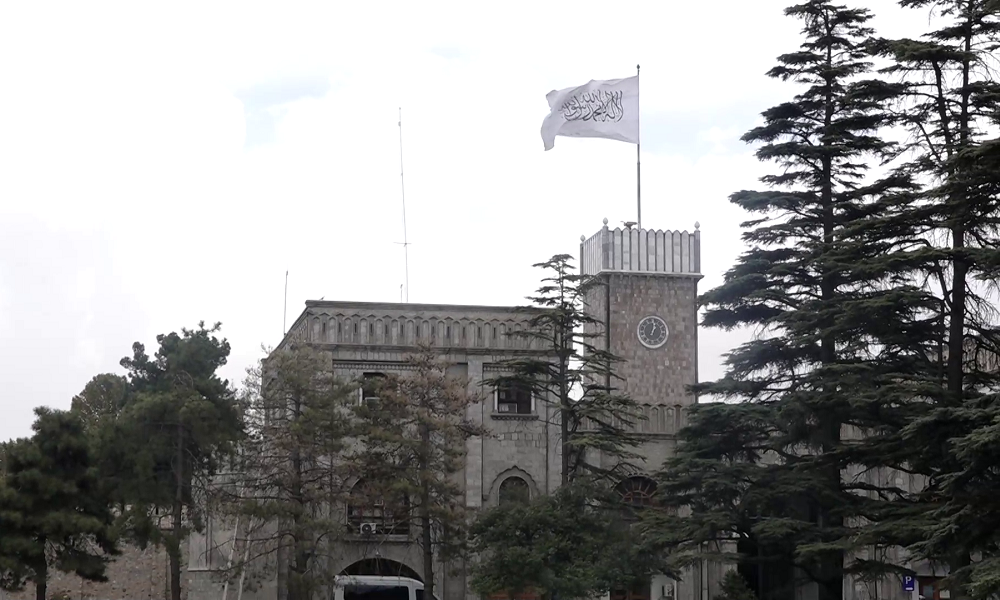Latest News
A look back at three years under the Islamic Emirate of Afghanistan

After defeating foreign forces and the republic government, the Islamic Emirate of Afghanistan swept across the country on August 14, 2021, seizing power as they went. A day later Kabul fell to the IEA, which has ruled the country ever since.
In this time, the Islamic Emirate was able to resist internal problems and international sanctions and achieve progress in governance and diplomatic relations with other countries.
The IEA has however been unable to achieve global legitimacy as the government in power.
But relations have improved over the past two years, especially with countries in the region. A number of which have accepted IEA diplomats.
All of Afghanistan’s neighbors, except Tajikistan, have recognized IEA diplomatic missions in their countries.
China was one of them, and became the first country to officially accept an IEA ambassador in Beijing.
Kazakhstan was another country that took a step to remove the IEA for its list of terrorist groups.
The IEA has however remained a ‘caretaker’ government in this time.
As yet, no country has officially recognized the IEA government.
International sanctions, including travel bans of IEA officials, and banking sanctions remained in place. In addition, Afghanistan’s seat at the United Nations has not yet been handed over to the IEA.
The acting government, meanwhile, deems the past three years to have been successful and emphasizes that despite global pressure on the IEA, it has been able to deal with problems and achieve success in various fields.
IEA spokesman Zabihullah Mujahid said in relation to recognition that many countries have official interaction with the ruling authorities and this in itself indicates recognition of the Islamic Emirate.
“We are in official interaction with China, the region, neighbors and Islamic countries. About 40 countries have official interactions with Afghanistan, they have embassies, consulates, consular services,” said Mujahid.
In these three years, according to the general amnesty decree of the supreme leader of the Islamic Emirate, Sheikh Hibatullah Akhundzada, the invitation to political figures and officials of the former government, who left the country after the fall of the republic system, to return to
Afghanistan continued, and during this period, hundreds of people including teachers and academics, political figures and former officials returned to the country through the Contact Commission.
However, in his speeches in the last three years, Hibatullah Akhundzada has always stressed the importance of strengthening the Islamic system and warned that they would not give in to any pressure in this respect.
In a recent speech, Akhundzada still asked the members of the Islamic Emirate to stay united and avoid differences and divisions.
Latest News
Continued aid to Afghanistan vital for regional security: Kazakh president

Kazakhstan’s President Kassym-Jomart Tokayev has emphasized the continuation of humanitarian assistance to Afghanistan, stating that the ongoing provision of such aid plays an important role in ensuring regional security.
Speaking at the international conference “Peace and Trust” in Ashgabat, the capital of Turkmenistan, Tokayev described addressing complex humanitarian challenges and the reconstruction of Afghanistan as a necessity.
“To ensure regional security, we consider it essential to continue providing assistance to Afghanistan, including by strengthening international efforts to address complex humanitarian issues and the reconstruction of this country. Kazakhstan remains committed to supporting the people of Afghanistan through humanitarian aid, educational projects, trade development, and food security initiatives,” he said.
Meanwhile, experts believe that sustainable improvement of the humanitarian situation in Afghanistan requires broad cooperation from the international community and support for the country’s economic development.
“Investment can be defined as one of the fundamental drivers of the economic cycle, and whenever Afghan traders do not take their money out of the country and instead invest domestically, it naturally leads to greater growth and dynamism in Afghanistan’s economy,” said Abdul Zahoor Modabber, an economic analyst.
As the humanitarian crisis in Afghanistan continues, reports by international relief organizations indicate that millions of citizens of the country are in urgent need of food, health, and livelihood assistance.
The reduction in funding for aid organizations, the impacts of climate change, and the return of migrants have increased concerns about a further deterioration of the humanitarian situation in the country.
Latest News
Islamic Emirate declines to attend Tehran meeting on Afghanistan
Latest News
Sirajuddin Haqqani: A government that intimidates its people is not a true government

Khalifa Sirajuddin Haqqani, Minister of Interior of the Islamic Emirate of Afghanistan, said during a visit to Khost province on Friday that any government which rules through fear cannot be considered a true government.
“A government is one that is loved by its people, one that serves them with respect and compassion, and from whose behavior people learn ethics and sincerity,” he said.
Haqqani also stressed that Afghans who opposed the Islamic Emirate in the past should be tolerated and treated in a way that helps eliminate hostility and animosity, paving the way for national cohesion.
-

 Sport4 days ago
Sport4 days agoILT20: Desert Vipers edge Gulf Giants in historic super over thriller
-

 Latest News2 days ago
Latest News2 days agoMuttaqi: Afghanistan’s progress requires both religious and modern education
-

 Regional4 days ago
Regional4 days agoSix Pakistani soldiers killed in TTP attack in Kurram District
-

 Business4 days ago
Business4 days agoTrade bodies warn almost 11,000 Afghan transit containers stuck at Karachi port
-

 World4 days ago
World4 days agoPowerful 7.6 earthquake hits northern Japan, tsunami warnings issued
-

 Latest News3 days ago
Latest News3 days agoTrump calls Afghanistan a ‘hellhole’ country as US expands immigration restrictions
-

 Sport5 days ago
Sport5 days agoSorkh Poshan Khafi defeats Sarsabz Yashlar 4-0 in Afghanistan Champions League
-

 Sport3 days ago
Sport3 days agoCommanding wins for Arman FC and Sarsabz Yashlar in Afghanistan Champions League

























